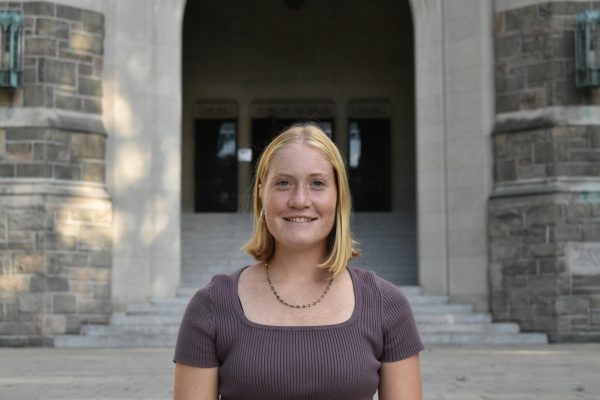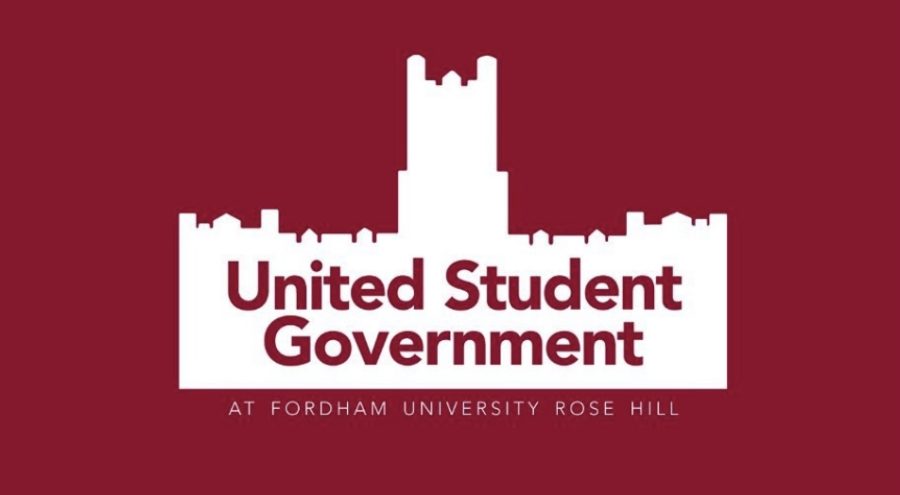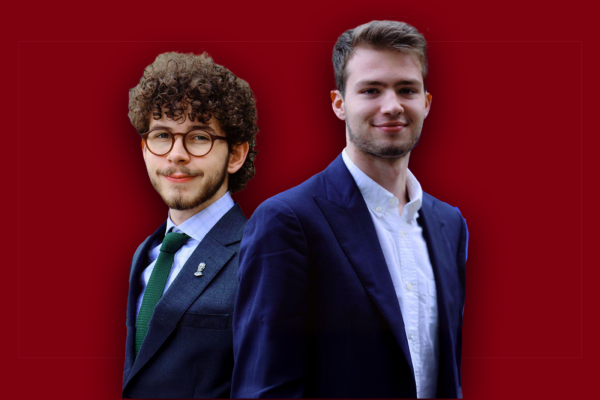USG Discusses Ongoing Re-Accreditation Process
On Thursday, Feb. 9, the Fordham Rose Hill United Student Government (USG) met to discuss campus dining hours and the university’s upcoming Middle States re-accreditation process.
A student representative for the Residence Hall Association (RHA) said that Under the Tent, an annual formal hosted by RHA on Martyrs’ Lawn, will be replaced with a more cost-effective formal.
USG then welcomed Associate Professor Melissa Labonte, Ph.D., and Greer Jason-DiBartolo, Ph.D., associate dean of academic administration, to speak about Fordham’s Middle States Accreditation Process. To maintain the original accreditation first granted in 1921, Fordham is expected to undergo re-accreditation every 8-10 years. This process allows the university a chance to reflect on how well it achieves and delivers on its mission as well as follows the Middle States’ seven standards for accreditation.
Labonte and Jason-DiBartolo said that although they are in the beginning stages of the accreditation, the process will take around three years and will span from the fall 2022 to summer 2025. They also both stressed that they are dedicated to improving the university, not just receiving the accreditation.
USG Vice President of Operations Lauren Wallczyk, FCRH ’25, said she thinks the accreditation is a great program and is willing to put the team in touch with various Fordham clubs to ensure a wide variety of voices and opinions are heard. Senator Sean Power, FCRH ’24, raised questions about the accreditation timeline and what the USG members can do to help. Labonte and Jason-DiBartolo said the next steps are to finalize the steering committee and working groups, write a report entitled “the self study design” and prepare for an April visit from the Middle States Commission on Higher Education VP Liaison.
USG Vice President of Diversity Equity and Inclusion Briana Al-Omoush, FCRH ’24, asked what benefits an accredited university receives. Labonte and Jason-DiBartolo said the accreditation brings more value and credit to the university by verifying it is delivering on its public message. They also mentioned federal government-provided funding as a benefit.
Al-Omoush also raised concerns about ensuring diversity is an important value for the university in the accreditation process. Labonte and Jason-DiBartolo said they are prepared to work hard in collaboration with Rafael Zapata, chief diversity officer, and that they recognize ensuring positive change is a constant process. Executive President Santiago Vidal, FCRH ’24, said that USG will be happy to provide the accreditation team with all relevant information regarding clubs numbers and budgets.
USG also recognized the Asian Cultural Alliance (ACE) as the USG January club of the month.
Tiberius Benaissa, GSB ’25, was recognized as the USG January senator of the month.
Daniel Sponseller, FCRH ’25, along with Mikaela Casanova, GSB ’26, and Nicola D’Abundo, FCRH ’26, presented a proposal to extend the operating hours of the Marketplace. Sponseller requested that the Marketplace remain open from 6:30 a.m.-11:00 p.m. and said he is currently working with a representative from Aramark. Jack Glynn, GSB ’25, questioned whether these changes would directly lead to an increase in the meal plan cost. Sponseller said it would not.
Molly Ewing, FCRH ’25, presented a budget request on behalf of the Committee on Sexual Misconduct to fund activities celebrating Women’s History Month. The budget was approved.
Keegan Roeder, FCRH ’23, presented the USG’s Statement on the earthquakes in Turkey and Syria.

Grace Galbreath is a junior from Willow Grove, Pa. majoring in communications and journalism. She began writing for the Ram spring of her freshman year...









































































































































































































